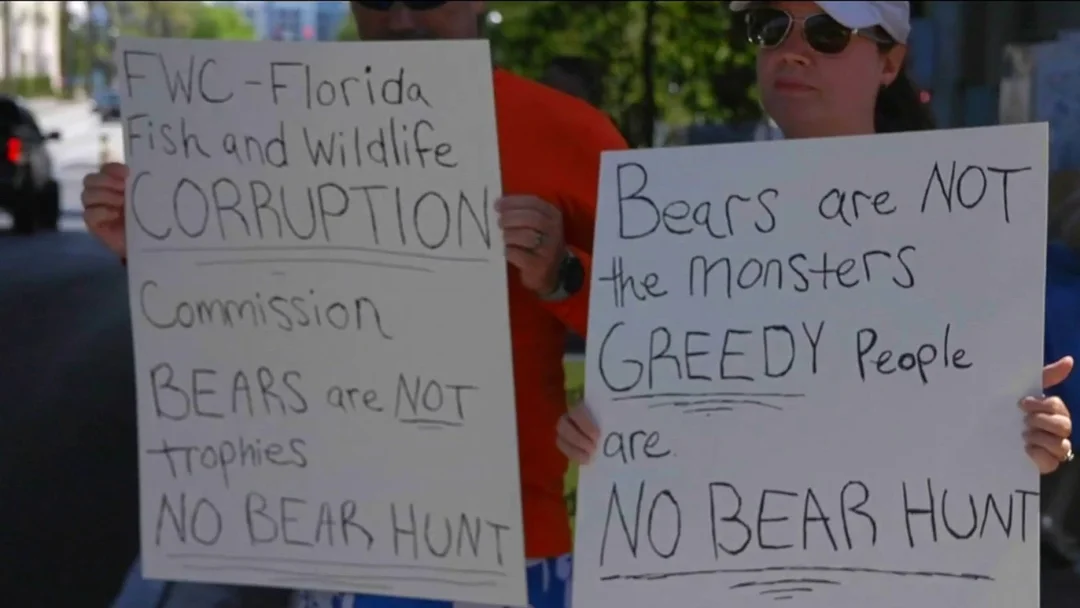
Is Florida’s Black Bear on the Brink of a Controversial Hunt?
In a heated debate that's capturing national attention, Florida's wildlife authorities are weighing a proposal to resume black bear hunting after nearly a decade hiatus. The Florida Fish and Wildlife Conservation Commission (FWC) recently held a contentious meeting where public opinions clashed over the potential implications for conservation and animal rights. As human expansion encroaches on bear habitats, this decision could reshape how the state balances wildlife management and public safety, raising questions about science, ethics, and environmental stewardship.
The controversy stems from FWC's push to reintroduce regulated black bear hunts, with a possible season slated for December. Proponents argue that Florida's estimated 4,000 black bears are straining ecosystems and increasing human encounters. Marion County Sheriff Billy Woods highlighted the issue, noting his office handled 107 bear-related calls in just nine months. "It needs to be regulated to keep our citizens safe," Woods told commissioners, emphasizing the need for controlled population management. Supporters like Travis Thompson from the All Florida conservation organization echo this sentiment, pointing out that Florida is one of only six states with significant bear populations that don't allow hunting. They advocate for methods like bowhunting and the use of up to six hound dogs, framing it as a necessary tool to maintain a healthy balance between species and habitat.
However, opponents are fiercely pushing back, calling the plan misguided and potentially devastating. James C. Scott, from Speak Up Wekiva, criticized the proposal during public hearings, stating, "The problem today is urban sprawl and unsecured trash, not overpopulation. The solution is conserving land, not hunting." Critics argue that the FWC is relying on outdated data—some nearly a decade old—with no comprehensive population study until 2029 or 2030. This contradicts the state's Black Bear Management Plan, which aims to maintain at least 3,000 adult bears and ensure genetic connectivity. The plan to allow hunting on private lands and with hound dogs is particularly alarming, as it shifts from public stewardship to what opponents like Leslie Carlile describe as "trophy hunting pure evil." Echoing past controversies, they reference the 2015 hunt, where over 300 bears were killed in just two days, leading to its abrupt shutdown and leaving orphaned cubs to likely perish.
This debate highlights a broader clash between conservation science and traditional practices. While the FWC proposes limits—such as a random drawing for 187 permits, restrictions on killing cubs or females with young, and a $100 fee for residents—the lack of updated safeguards raises red flags. Comparisons to other states show Florida's approach could be more aggressive, potentially undermining efforts to address root causes like habitat loss and improper waste management. A recent fatal bear attack in Collier County has fueled support, but critics counter that non-lethal solutions, like securing garbage, are more effective and humane.
As the FWC prepares for a final vote in August, the outcome could set a precedent for wildlife management nationwide. This isn't just about bears; it's about how we coexist with nature in an era of rapid development. Will Florida prioritize long-term conservation or short-term control? The decision underscores the need for transparent, science-based policies that truly protect both people and wildlife.
In the end, this controversy invites reflection on our environmental responsibilities. What do you think—should hunting be part of the solution, or is it a step backward? Share your views in the comments below and help spark a broader conversation on wildlife conservation.